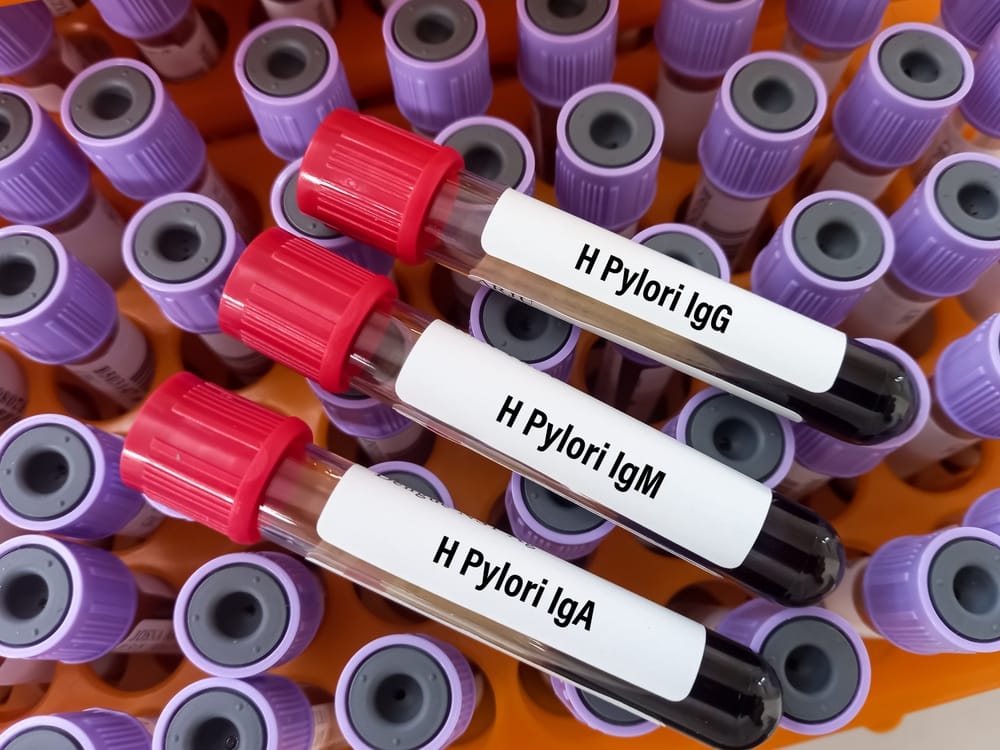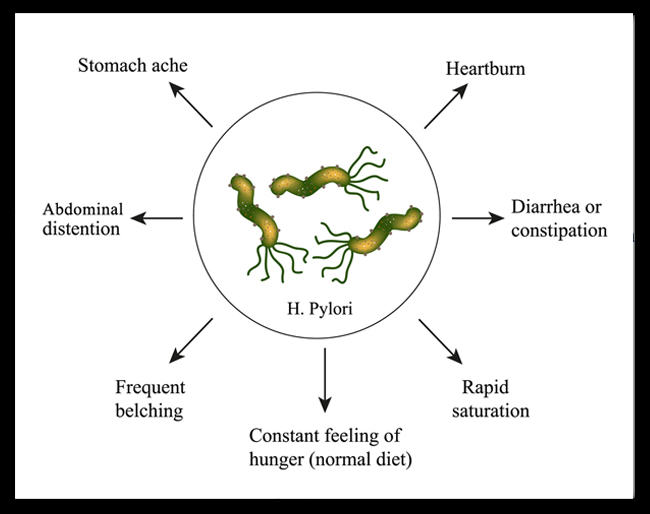

H. pylori are spiral-shaped bacteria that can cause peptic ulcer disease by damaging the mucous coating that protects the lining of the stomach and duodenum. Once H. pylori have damaged the mucous coating, powerful stomach acid can get through to the sensitive lining. Together, the stomach acid and H. pylori irritate the lining of the stomach or duodenum and cause a peptic ulcer.

A person who has contracted an H. pylori infection is more likely to develop an H. pylori-induced peptic ulcer. Researchers are not certain how H. pylori infection spreads, although they think that contaminated food, water, or eating utensils may spread the infection. Researchers have found H. pylori in the saliva of some infected people, which suggests that infection could spread through direct contact with saliva or other bodily fluids. Most people contract H. pylori infection during childhood, and it remains dormant for years. Adults rarely contract H. pylori.

Developed countries 10% due to hygiene and improved sanitation, In developing its 60-80% India is Tropical.

The manifestations of H. pylori infection include gastritis, gastric atrophy, duodenal ulcer disease, gastric ulcer disease, primary gastric B-cell lymphoma, gastric adenocarcinoma, iron deficiency anemia, and vitamin B12 deficiency.






© 2026 Enactis. All Right Reserved.
Designed & Developed by  Innov Touch Technologies Pvt Ltd.
Innov Touch Technologies Pvt Ltd.